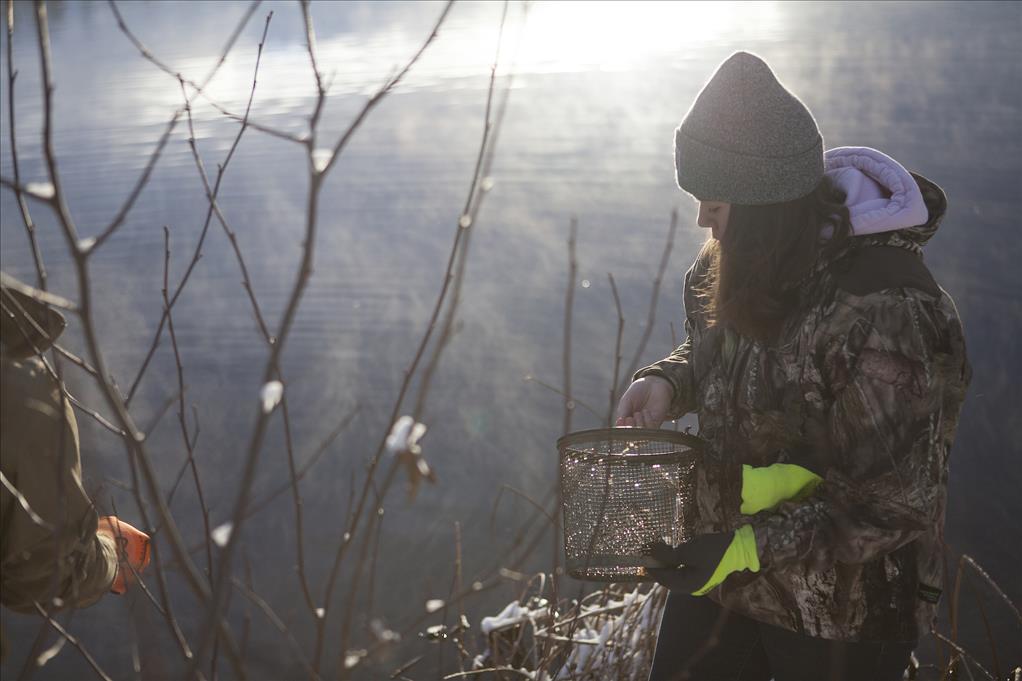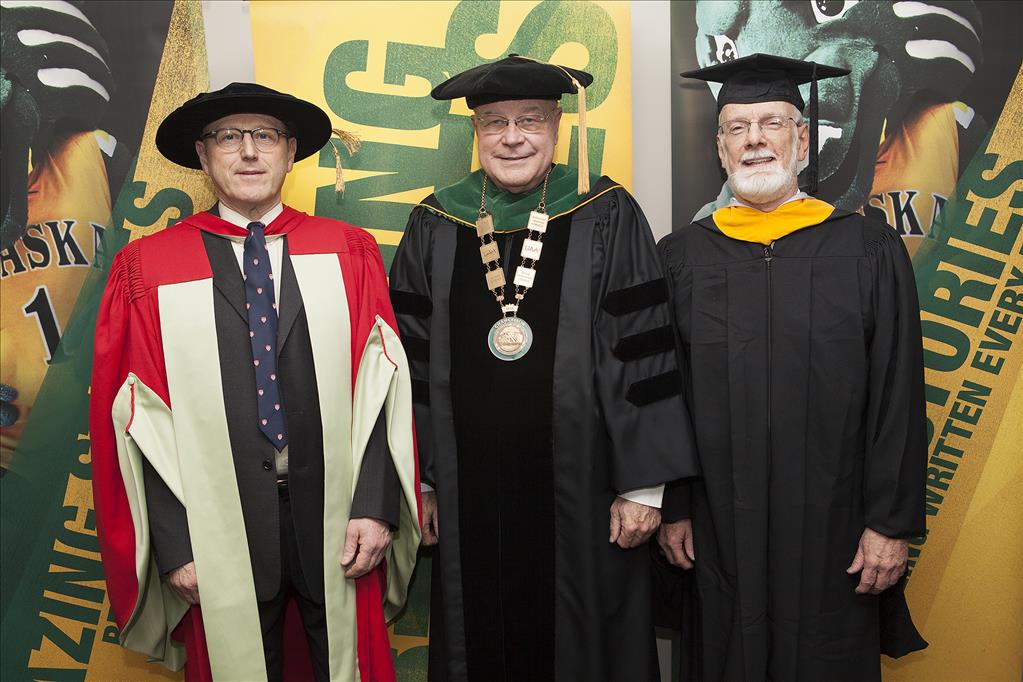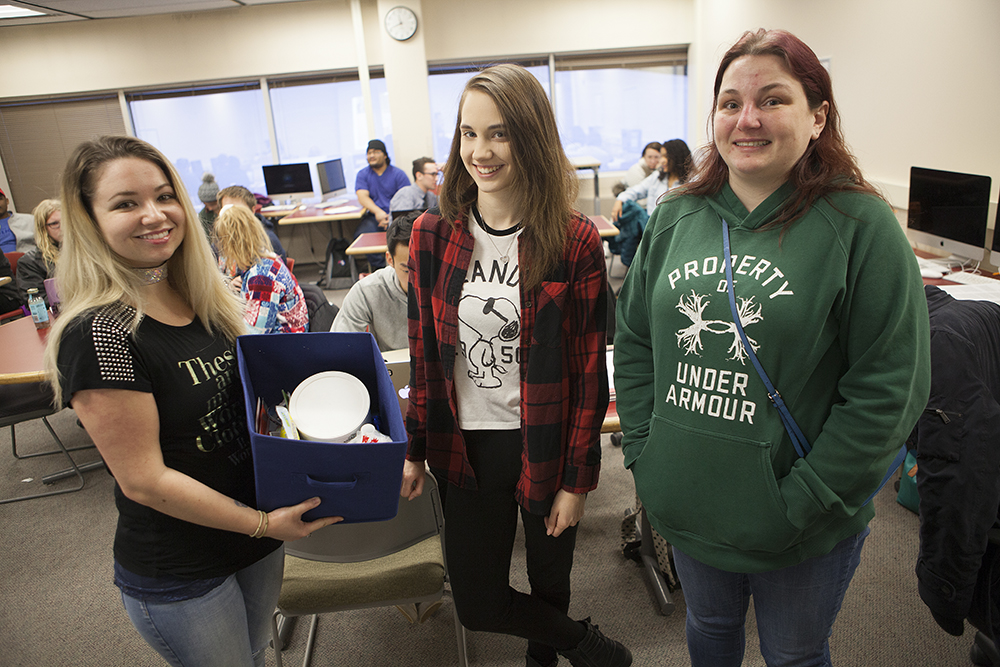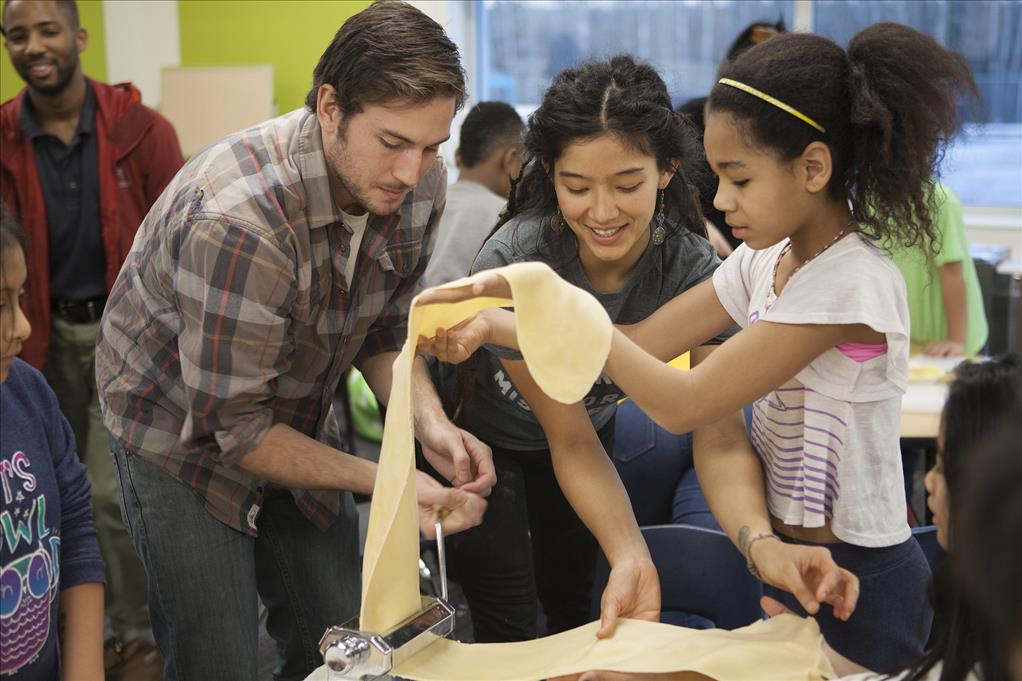“Bubble guns in the parking lot. That’s my life."
by joey |
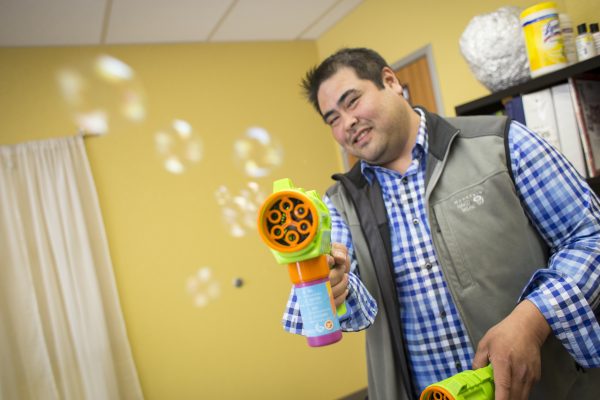
Keita Senaga, B.A. '99, M.S.W. '15, helps mentally challenged youth grow towards independent living. It's a demanding role, but it certainly looks like fun and games (Photo by Ted Kincaid / University of Alaska Anchorage).
Kids stop by to deliver homemade parfaits. Artwork on construction paper plasters the walls. By the desk, there's an always-full candy machine named Justin Bieber, with a computer printout of the pop star taped to the front. This is definitely one of the wackier offices of Anchorage.
But Keita Senaga, B.A.'99, M.S.W. '15, has a lively colorful office to match the lively colorful kids he works with every day. Since graduating with his sociology degree, Keita has worked for AK Child & Family in a few roles, all focused on the mental health of Anchorage's youth. His recent master's degree boosted him to a supervisory role over the organization's most challenging cases.
Keita helps deliver AK Child's powerful mission through a variety of activities. For him, everything has a secondary motive; a board game, for example, is an opportunity to manage frustration, control impulses, increase social skills and even just start a conversation.
But, yes, on the surface, it sure looks like all fun and games.
"Bubble guns in the parking lot. That's my life," he laughed.
Starting in social work
Shortly after graduating with a sociology degree, Keita landed a job in AK Child's residential program. The home-located near Service High School-houses up to 56 youth who need focused attention in a therapeutic community. "From the day I stepped into that unit, I knew this is what I wanted to do," he said.
After a few years, he moved into a case manager role, where he stayed for more than a decade. Like most social work jobs, the pay wasn't great, but "what you get out of the work... you can't buy that," he noted. "I knew I was going to make working with kids a lifelong career."
But he didn't want to stay a case manager forever. After 10 years, he saved up enough money to return to UAA part time. "I decided it was best for me to continue my education so I could have a better capacity to help these kids," he noted.
"The kid is the sun and we're all planets"

Keita's walls reflect the hundreds of kids he's worked with at AK Child & Family (Photo by Ted Kincaid / University of Alaska Anchorage).
Last year, he earned his master's in social work in May and had a new role at AK Child by October. "I enjoy every day that I work here," he said. "And none of it could have happened without UAA and my sociology degree to introduce me to the field, and my master's degree to continue my education and my career."
In his new role, Keita oversees a team of 17 activity therapists and two community program coordinators that prepares the agency's youth for life outside their care. "Our job is to work ourselves out of a job," he explained, citing the collective quest to get students independent and out of their services.
Though AK Child assists hundreds of youth, Keita's students require the most attention. It's not uncommon for an activity therapist to accompany a younger kid to school and spend the entire day in the classroom masquerading as a teacher's aide.
These kids-about 90 in Anchorage overall-experience some level of mental illness (like depression, schizophrenia, bipolar or fetal alcohol spectrum disorder) and their illnesses result in a range of behaviors including severe aggression, an inability to express themselves and even self-harm and suicide attempts. Many also come from a history of abuse and trauma, adding layers of attachment and trust issues to their existing mental illnesses.
AK Child's community programs are a serious effort, and require specific care per individual. "The kid is the sun and we're all planets revolving around it," Keita noted. "A lot of this stuff is hard work, but it feels pretty good."
Everything matters

Every detail is an opportunity. For example, the colors kids choose can reflect their feelings and thoughts (Photo by Ted Kincaid / University of Alaska Anchorage).
So what does activity therapy actually look like? And, regardless of their background, how do you get any kid excited about life skills?
Like the hidden benefits of the board game, everything Keita does builds a child's capacity for independence. He sees the world through a resourceful lens, where every decision in a day carries weight and value. Crayons aren't just for scribbling-color selections can represent emotions. A full refrigerator isn't just for snacks-it creates a safe, comfortable space. And why, in that refrigerator, is there nacho cheese next to all the healthy snacks? "I want these kids to be empowered to make choices," he said. Everything matters.
He infuses this unique worldview into his activity therapists and always leaves his doors open for staff and students to seek advice, share stories or snag candy from the Justin Bieber machine (it's a goofy decoration, but also an anchor of familiarity for his students).
Activity therapists pick up their kids after the school day and work with them on a variety of tasks. They teach younger kids how to express themselves and cope with emotions. They teach older kids how to navigate adulthood and relate to authority.
For example, an activity therapist may take their student to the grocery store to read labels, compare prices and make a meal plan. Then, they'll head to the kitchen to cook. They may even take the bus home to add another future life skill to the day.
Many of his students have significant cognitive issues-though physically 17 years old, they might emotionally function like they're 8. It takes a lot of enthusiasm to combat outbursts and apathy, but Keita clearly has that passion.
"This is how you love your job"

"I have a commitment to working with kids," Keita said. "I get a lot out of it" (Photo by Ted Kincaid / University of Alaska Anchorage).
Keita has now worked with hundreds of kids and though he's lost some along the way-some to relocation, some to possible gang violence-success stories have been building since he started in 2000.
One kid didn't go to school until he was in seventh grade; he taught himself to read as a teenager and later enrolled at UAA. Another is the first in his family to graduate from high school. A third is now a case manager himself.
"Anchorage is such a small community, I see them everywhere," Keita said of his former students. He recalls one kid from early in his career: "Last time I saw him was in the old Kmart parking lot, holding onto the windshield of his dad's car, banging on the hood." Fast-forward 12 years and that kid is now a clean and sober college grad, married with two kids and working as an electrician.
"I see those successes and I'm so happy, I'm beside myself," Keita said.
The challenging job comes with a valuable outcome, and Keita wouldn't be anywhere else. "I have a commitment to working with kids," he said. "I get a lot out of it. There are no regrets."
"How can you love your job?," he asked from a tiny table in the center of his bright, bold office, gesturing to the puzzles and bubble guns on the shelves lining the wall. "This is how you love your job."
 "“Bubble guns in the parking lot. That’s my life."" is licensed under a Creative Commons Attribution-NonCommercial 4.0 International License.
"“Bubble guns in the parking lot. That’s my life."" is licensed under a Creative Commons Attribution-NonCommercial 4.0 International License.










